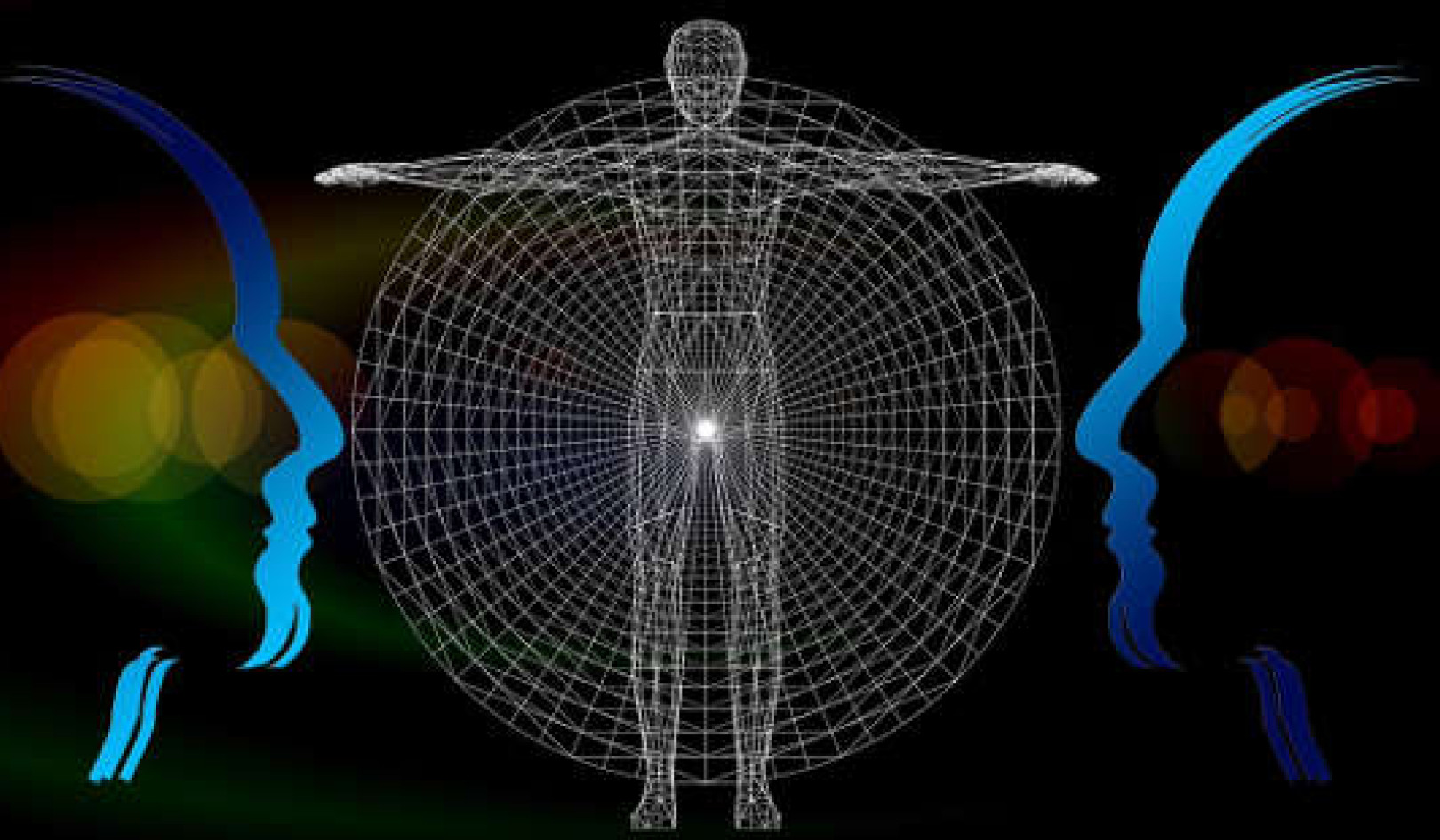
The way you think about decisions gives you a remarkable decision-making super power that enables you to make decisions with confidence even when you have just the smallest glimpse of data. As a matter of fact it’s so good that, if you were the only one who had it, you could charge a fortune on your own psychic hotline. Fortunately for the rest of us, we all come hard-wired with this amazing capability, and all we have to do is learn to use it effectively.
Your decision making super-power is that you rely on comparison instead of measuring actual values using a neat part of your brain I call your Difference Engine. You aren’t measuring things, you are comparing them and seeing their differences.
Using Your Difference Engine to Compare Choices
Your Difference Engine is a part of your brain that helps you to understand and define things. It does this by putting the thing you seek to understand in relation to something else and observing what is similar and what is different in the comparison. If you are traveling in a new country and someone serves you a mysterious stew, you might try to understand what it is by comparing it to something you already know. Maybe the stew smells fishy, so it might be similar to a fish stew you once had. Maybe it has potato in it, so it might be similar to a chowder.
Comparison is the method we use to make sense of the world around us. We define things by understanding what they are similar to and what they are not. We create categories of things that are similar in order to understand them better.
When you are making decisions, you need to define and understand your options before you can figure out which choice you like best. This is where your Difference Engine is in charge. It will serve up comparisons among your options and point out the differences between them. It enables you to see the benefits of one option in comparison to the benefits of another so that you can determine which one you like better.
Using your Difference Engine to make comparisons is how you figure out what you like. Without something to compare a particular option to, it’s much harder to figure out whether that option is a good or bad one.
Feeling Your Way to a Decision
Sometimes comparison is quantitative, which makes it pretty straight forward. It can be as simple as a binary choice between more or less, faster or slower. If you are choosing between a bag with 3 apples and another bag with 4 apples simply to get the most apples, all you have to do is count the apples in each bag to get your answer.
But often, decisions are much more subjective, which means that the benefits of the differences between the alternatives are a matter of opinion.
In a choice between eating an apple and an orange, the decision would be subjective because both fruits have their own unique benefits and one isn’t inherently better than the other. What’s tricky about subjective decisions is that there usually isn’t one “right” answer, and it’s up to you to decide if you like one more than another based on how you feel about those differences. Maybe today you are in the mood for an apple, so in this case, the apple becomes the right decision. Generally, subjective decisions can be a lot harder because, when subjective opinion is involved, it’s harder to resolve the ambiguity you might have about a choice. When there is no clear answer, there is no clear answer.
Luckily for you, subjective decision making comes naturally to you. In fact, it’s what you’re built for. You don’t actually think about whether or not you like a decision – you feel your way there. For every single decision you make, the moment of choosing starts with your emotions and is based on how you feel. If you watched your brain activity during decision making, you would clearly see the area of the brain dealing with subconscious emotions light up first, followed closely by the rational, more conscious region. Your subconscious emotions decide how they feel about the decision, and then your conscious mind rationalizes the choice.
I’m not saying that you don’t think at all before you make a decision. Your Difference Engine thinks constantly. But for every comparison your Difference Engine is making, your emotions are involved. It’s actually your emotions that are making the call as to which one choice is better. Your emotions decide. Your Difference Engine does some of the work but the real decision is there on the gut subconscious level, first.
Whether or not we realize this, we rely on our emotions to make decisions. The emotion-centered portion of your brain is essential to your decision making. This portion of your brain is so essential that if it is damaged or non-functional, you will be completely stuck, and unable to decide anything at all. Neuroscientist Antonio Damasio studied people who had damaged the portion of their brains that generate emotions. He found that, while those people could understand the logic of a decision and could weigh both sides (using their Difference Engines), when it came to actually deciding, they simply couldn’t choose. Without emotions, they didn’t know which choice was better so they didn’t know which one to pick.
Your Personal Emotional Context
Whether or not you like something can be impacted by the context you experience it in. If you experience a new city on a beautiful sunny day, it can cause you to feel more positively about the city. On the other hand, when you’re in an environment you don’t like, your perception of what you experience in that environment is negatively impacted. For example, eating great cake in a garbage dump is not the same as eating that same great cake in a wonderful bakery. Another example: if you associate something even as nice as great cake with an emotion of sadness, the thing or cake itself becomes sad in your mind. This is because sadness is your personal, emotional context for experiencing that cake.
It’s all about what you associate with your experience. Your positive or negative associations can impact just about everything you see, think, feel, and know. Association itself can impact your understanding of things that would generally be considered objective, quantitative and measurable, such as simple questions of more or less, and longer or shorter. I find this is especially true in my experience of time. I recently had to get my driver’s license renewed, so I blocked a few hours off on my calendar and mentally prepared myself to be very, very bored. Time passes very slowly at the DMV.
Of course, the truth is that time always passes at the same rate. We know this because we have watches to measure time. But our experience of time doesn’t work that simply. Time spent in line at the DMV always takes much longer than time spent dining with friends. Even though the actual measure of each hour is always 60 minutes, without the aid of a watch, we would be terrible at estimating time.
We evaluate the length of an hour based on whether we liked that hour or not. Fun hours seem to have fewer minutes in them and are much shorter than boring hours. DMV-waiting hours have hundreds of minutes in them. If you feel bored at the DMV, then DMV minutes become long and boring.
So, your experience of something can affect your experience of making decisions about it or something related to it. When you are making decisions by evaluating whether or not you like something, your emotions carry all of your past experiences and understandings into your experience of each of your alternatives.
Every choice you make is deeply personal because you bring the emotional context of your own life experience to every decision that you make. If your context around an alternative is positive, you feel positive about making your choice. Someone else may attach a totally different meaning to that alternative and may not like your choice. But your positive emotional context makes it the right choice for you.
The Nature of Emotions
When you make decisions, you need your emotions to feel your way to the best choice, but your emotions are unruly and hard to control. They are very sensitive to danger, and there can be a lot of perceived danger in decision making. You aren’t able to know everything and you have to make choices using your best judgment with a limited amount of information.
It’s the ambiguity that can make decision-making scary, and it can make you fearful. You have learned that unexpected things happen. When you hear stories about mistakes, failures and regrets, those scenes live large in your imagination. You imagine all the negative outcomes that could happen from whatever decision you make and the fear you feel can keep your emotions running for safety instead of doing what you need them to – making a decision.
You have to deal with ambiguity and fear in order to tame your emotions so that you can make decisions and get work done in life. This is why your Difference Engine is so important. It can take a really ambiguous and scary decision and help you boil it down to something simpler – a comparison between two things you know. When you reduce the ambiguity in the decision, you reduce your fear, so your emotions can relax and do what you need them to do - quickly assess how you feel and commit to a choice.
Shifting Your Difference Engine
There is a myth about Midas, the King of Lydia, who wished for the power to turn everything he touched into gold. He was thrilled when he got this amazing super-power, but when he accidently turned his daughter to gold he realized that he had too much of a good thing.
You might sometimes feel the same way about your Difference Engine. Your Difference Engine isn’t self-regulating. It doesn’t know when you’d like it to stop, and it never stops itself. Your Difference Engine is always on, scanning your environment for alternatives and comparing differences, seeing which option is better. Your Difference Engine will make you think about how your neighbor’s house compares to yours, or how your clothes fit compared to the last time you put them on, or how the weather this year compares to spring of last year. Your Difference Engine will ask you, which is better or worse?
Imagine you’ve done all the work to come to a decision, and that you are feeling very happy and satisfied with your choice. Then imagine that, after all that work making your decision, your Difference Engine shows up at the door with a new batch of alternatives to show you. This situation would feel quite counterproductive. Looking at more choices after you have made your decision would introduce ambiguity into the choice you have already made. This could only make you feel doubts about your decision.
Once you become aware of your Difference Engine, it can feel a little like a dog with a tennis ball he wants you to throw over and over again. Every time you start to relax, that slobbery ball is dropped in your lap again. Your Difference Engine is like the dog who wants you to throw the ball again, asking, “how about this one, better or worse?” If you’ve already made your choice, this can be annoying.
You can never stop your Difference Engine. So how do you prevent your Difference Engine from showing you new alternatives and comparisons after you’re ready to commit? The answer is to shift it into a new gear. This critical step happens when you make a commitment to your choice.
Copyright 2016 by Anne Tucker. All Rights Reserved.
Article Source
Undoubtedly Awesome: Your own personal roadmap from doubt to flow
by Anne Tucker
 Don’t let doubt rule your life. Many people are so paralyzed by the fears of tomorrow that they forget to focus on the wonders of today. But with the help of Undoubtedly Awesome, you can conquer your fears and better understand your goals, dreams, and unique decision-making processes—and thereby achieve the personal success your uncertainty and indecision have held you back from.
Don’t let doubt rule your life. Many people are so paralyzed by the fears of tomorrow that they forget to focus on the wonders of today. But with the help of Undoubtedly Awesome, you can conquer your fears and better understand your goals, dreams, and unique decision-making processes—and thereby achieve the personal success your uncertainty and indecision have held you back from.
Click here for more info and/or to order this book.
About the Author
 Anne Tucker, a speaker on decision making, leadership, personal transformation, and self-doubt, has developed a unique test to identify an individual’s “soul type” and illuminate the mental processes behind every decision. She is the cofounder of Grey Matter Partners, a leadership-development firm based in Seattle, Washington, whose executive-coaching services have helped senior executives become better leaders and more effective decision makers. She also founded Wisdom Soup, a closely-curated learning community designed to help its members achieve breakthrough spiritual growth and insight in order to achieve practical real-life goals. Visit her website at http://www.undoubtedlyawesome.com/
Anne Tucker, a speaker on decision making, leadership, personal transformation, and self-doubt, has developed a unique test to identify an individual’s “soul type” and illuminate the mental processes behind every decision. She is the cofounder of Grey Matter Partners, a leadership-development firm based in Seattle, Washington, whose executive-coaching services have helped senior executives become better leaders and more effective decision makers. She also founded Wisdom Soup, a closely-curated learning community designed to help its members achieve breakthrough spiritual growth and insight in order to achieve practical real-life goals. Visit her website at http://www.undoubtedlyawesome.com/
Related Books
at InnerSelf Market and Amazon
























